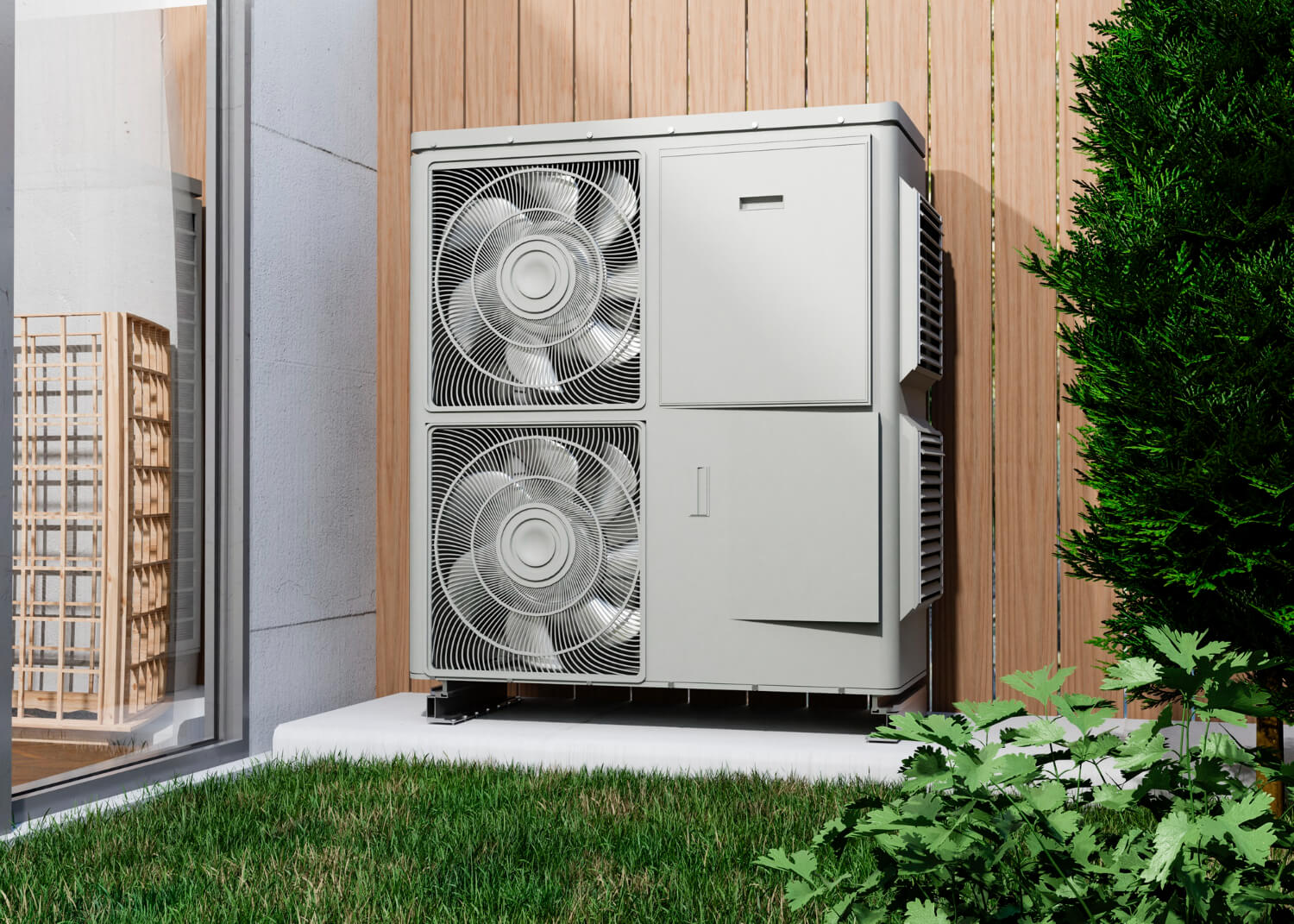In this blog, we delve into what heat pumps are, how they work, their benefits, and why they are the future of HVAC technology.
What is Heat Pump Technology?
Heat pumps are devices that transfer heat from one place to another, providing heating and cooling for residential and commercial buildings. Unlike conventional HVAC systems that generate heat through combustion or electric resistance, heat pumps use a refrigerant cycle to move heat. This method is not only more energy-efficient but also reduces the reliance on fossil fuels.
Heat pumps come in several types, including:
- Air-source heat pumps (ASHPs): These extract heat from the air outside and bring it indoors during winter or expel heat outdoors during summer.
- Ground-source heat pumps (GSHPs): Also known as geothermal heat pumps, these use the stable temperature of the earth to provide heating and cooling.
- Water-source heat pumps: These operate similarly to GSHPs but use a nearby water source, such as a lake or pond, for heat exchange.
How Do Heat Pumps Work?
At the heart of heat pump technology lies the principle of heat transfer, facilitated by a refrigeration cycle. Here’s a simplified explanation of the process:
- Heat absorption: A refrigerant absorbs heat from the air, ground, or water through an outdoor coil.
- Compression: The refrigerant is compressed, raising its temperature.
- Heat release: The heated refrigerant travels to an indoor coil, where it releases heat into the building.
- Expansion: The refrigerant is then expanded and cooled, restarting the cycle.
This process is reversible, allowing heat pumps to cool space in summer by removing heat from indoors and transferring it outside.
Benefits of Heat Pump Technology
1. Energy Efficiency
Heat pumps are renowned for their high energy efficiency. They move heat rather than generate it, which requires significantly less energy. For instance, air-source heat pumps can deliver up to three times more heat energy than the electrical energy they consume.
2. Environmental Friendliness
By using renewable energy sources like air, ground, or water, heat pumps reduce greenhouse gas emissions. When paired with renewable energy systems like solar panels, their carbon footprint can be further minimized.
3. Versatility
Heat pumps provide both heating and cooling, eliminating the need for separate systems. This dual functionality makes them a cost-effective and space-saving solution.
4. Cost Savings
Though the initial installation cost of a heat pump may be higher than traditional systems, the long-term energy savings often outweigh the upfront expense. Reduced energy consumption translates to lower utility bills.
5. Longevity and Durability
Heat pumps are built to last, with lifespans typically ranging from 15 to 20 years. Regular maintenance ensures optimal performance and longevity.
6. Improved Indoor Air Quality
Heat pumps can improve indoor air quality by maintaining consistent humidity and filtering out dust and allergens. This is particularly beneficial for individuals with respiratory conditions.

Applications of Heat Pump Technology
Heat pumps are highly versatile and can be used in various settings, including:
Residential
Homeowners can enjoy year-round comfort with heat pumps. They are particularly beneficial in areas with moderate climates but are increasingly effective in colder regions due to advancements in technology.
Commercial
Businesses can reduce their energy costs and carbon footprint by adopting heat pumps for heating, cooling, and even hot water production. Many commercial establishments, including offices, retail spaces, and schools, have embraced this efficient solution.
Industrial
Heat pumps are also used in industrial settings for process heating, drying, and waste heat recovery, contributing to significant energy savings.
Advancements in Heat Pump Technology
Modern heat pumps are more efficient and versatile than ever, thanks to ongoing advancements in technology. Some notable developments include:
1. Cold Climate Heat Pumps
Earlier models struggled in extremely cold temperatures. However, cold-climate heat pumps are specifically designed to operate efficiently in sub-zero conditions, making them viable for regions with harsh winters.
2. Integration with Smart Home Systems
Heat pumps can now be integrated with smart thermostats and home automation systems, allowing for precise temperature control and energy monitoring through smartphones and other devices.
3. Variable Speed Compressors
Variable speed technology enables heat pumps to adjust their output based on the heating or cooling demand, improving energy efficiency and comfort.
4. Eco-Friendly Refrigerants
Many modern heat pumps use refrigerants with lower global warming potential (GWP), aligning with environmental regulations and sustainability goals.
Is a Heat Pump Right for You?
Deciding whether a heat pump is the right choice depends on several factors, including your climate, energy needs, and budget. At Rocky Hill Electric, our team of experts is here to guide you through the selection and installation process, ensuring you get the most suitable system for your home or business.
Why Choose Rocky Hill Electric for Heat Pump Installation?
At Rocky Hill Electric, we’re committed to providing top-quality electrical and HVAC services tailored to your needs. When you choose us for your heat pump installation, you can expect:
- Expert Guidance: Our team will help you understand your options and choose the right heat pump for your property.
- Professional Installation: We ensure your heat pump is installed correctly for optimal performance and efficiency.
- Ongoing Support: From maintenance to repairs, we’re here to keep your system running smoothly.
With years of experience and a reputation for excellence, we’re your trusted partner in sustainable energy solutions.
Takeaways
Heat pump technology represents a significant step forward in the quest for energy-efficient, eco-friendly heating and cooling systems. Whether you’re a homeowner looking to reduce energy bills or a business aiming to meet sustainability goals, heat pumps offer a compelling solution.
Contact Rocky Hill Electric today to learn more about heat pump technology and how it can transform your home or business. Together, we can create a more sustainable and comfortable future.
